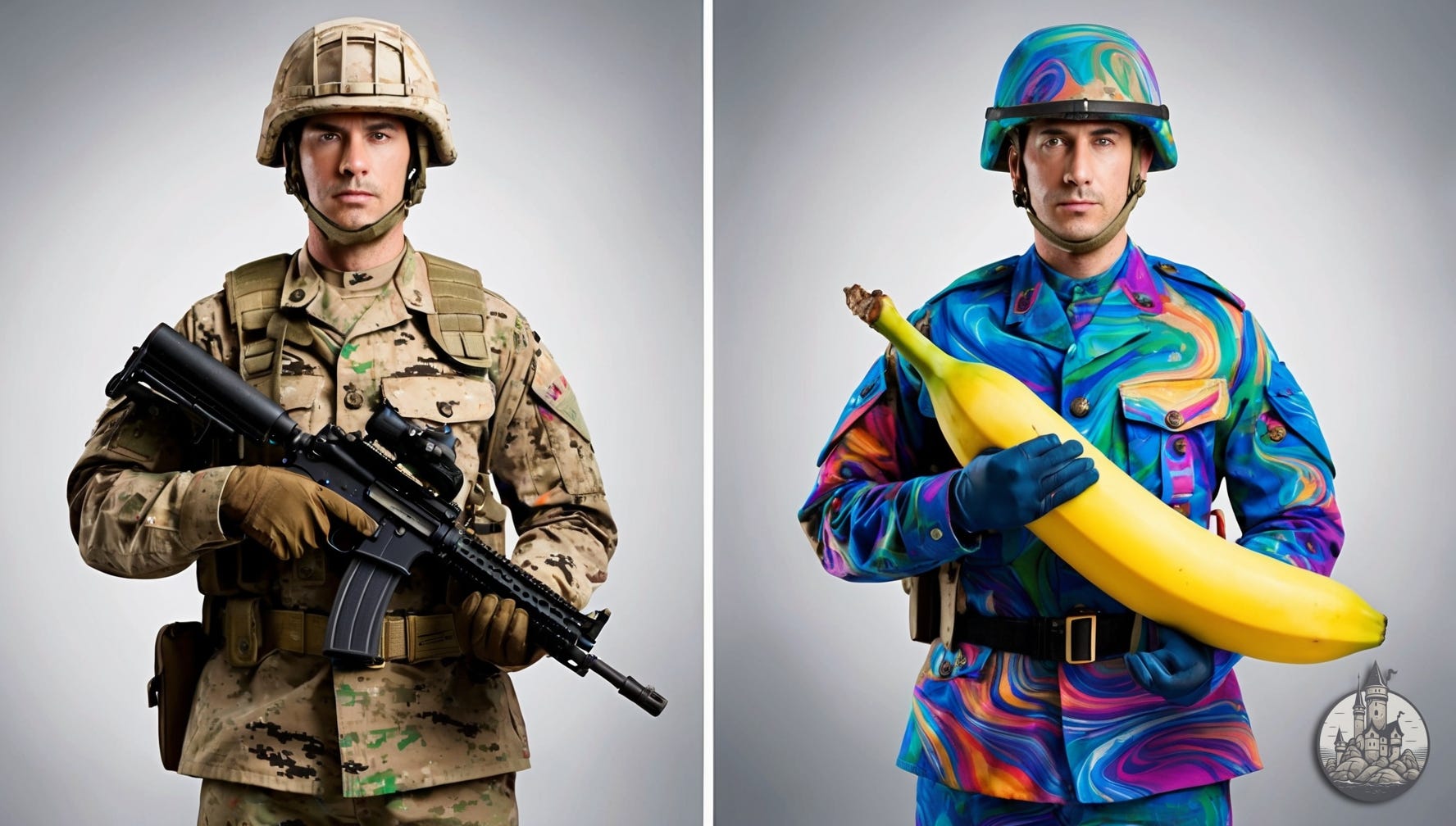In 1964, as the Cold War raged on, the British Army embarked on one of the most bizarre military experiments in history. Picture this: highly trained Royal Marines, known for their discipline and combat skills, suddenly tripping on LSD during a training exercise. Sounds like science fiction, right? But this really happened.
The world was deep in the grip of the Cold War, with both East and West frantically searching for any edge over their adversaries. Military laboratories were buzzing with activity, testing everything from mind control techniques to weather manipulation. In this climate, the idea of using drugs as weapons didn't seem so far-fetched.
Enter LSD, or lysergic acid diethylamide, a powerful hallucinogen that can drastically alter a person's perception of reality. The British military saw potential in this mind-bending substance. Could it be used to incapacitate enemy troops? Or perhaps enhance their own soldiers' performance? They decided to find out.
The experiment was set up at Porton Down, the British military's chemical warfare research facility. The plan was deceptively simple: dose a squad of Royal Marines with LSD, then have them perform a series of standard military exercises. Each Marine was given 200 micrograms of LSD - a moderate to high dose - mixed into their canteens. They were told it was a harmless substance that was part of the exercise.
As the drugs took effect, the carefully planned military exercise quickly descended into chaos. One Marine climbed a tree to feed the birds, claiming they were talking to him. Another became fixated on a small stream, spending over an hour watching what he described as 'tiny cars racing along the water'. Perhaps most bizarrely, one Marine couldn't stop laughing and insisted his gun was turning into a banana.
The objective had been to 'defend' a hill against another group of non-dosed Marines. But as the LSD took hold, the defensive positions fell apart. Some Marines were found wandering aimlessly, others were lying down making 'snow angels' despite it not being winter, and a few even tried to communicate with trees they insisted were enemy soldiers in disguise.
One of the observing officers later reported: 'It was like a scene from Alice in Wonderland. I've never seen anything like it. These were highly trained, disciplined men reduced to a state of complete confusion.'
After about four hours, it became clear that not only was the exercise a failure, but it was becoming dangerous. Several Marines had wandered off, and there were concerns about hypothermia as some had removed clothing. The decision was made to terminate the experiment. A full recall was sounded, but many of the dosed Marines either couldn't understand the signal or chose to ignore it. It took over two hours to round up all the participants and return them to base.
So why did this experiment fail so spectacularly? The researchers had grossly underestimated the potency and unpredictability of LSD's effects. They had hoped the drug would simply reduce inhibitions and possibly enhance performance. Instead, it rendered most of the Marines incapable of following even basic instructions.
Moreover, the setting of a military exercise proved particularly unsuitable for an LSD experience. The drug tends to amplify the user's surroundings and internal state. In a high-stress, potentially dangerous environment like a combat simulation, this led to anxiety and confusion rather than any tactical advantage.
The long-term effects of this experiment were mixed. While there were no reported negative health effects from this single dose, the psychological impact was significant. Some Marines reported flashbacks in the weeks and months following. A few found the experience enlightening, but others struggled with feelings of betrayal and anxiety, knowing they had been unknowingly drugged by their own command.
This failed experiment taught the military several crucial lessons. It highlighted the importance of ethical considerations in military research, leading to stricter protocols for human testing. It demonstrated the unpredictability of psychoactive substances in high-stress situations. Perhaps most importantly, it underscored the value of a clear, focused mind in military operations.
By the late 1960s, most Western nations had officially banned the use of psychoactive drugs in military experiments without explicit consent. The incident contributed to broader discussions about ethical standards in military and scientific research.
In the end, the 'Psychedelic Marines' experiment stands as a cautionary tale – a reminder that in the fog of war, adding another layer of fog is rarely the answer. It's a strange chapter in military history that continues to fascinate and shock us to this day, serving as a stark reminder of the potential dangers of seeking shortcuts to military advantage.
The End.






Have you seen the video No Mas Presents: Dock Ellis & The LSD No-No by James Blagden? June 12, 1970, the day he no-hit the San Diego Padres. Another historical moment and a bit more successful outcome. And funnieR. https://youtu.be/_vUhSYLRw14?si=AtG-Uk-NZGCaeeMf